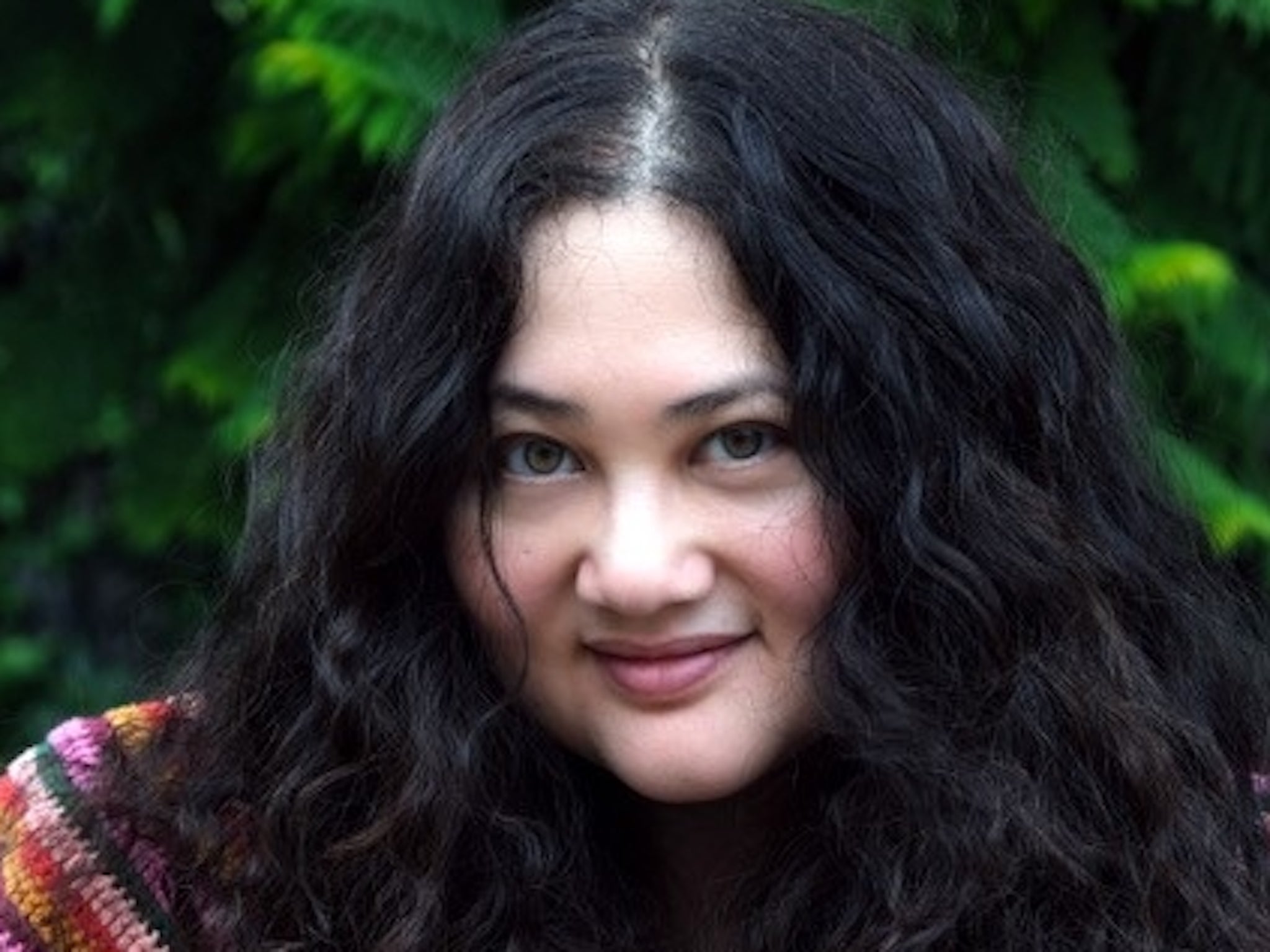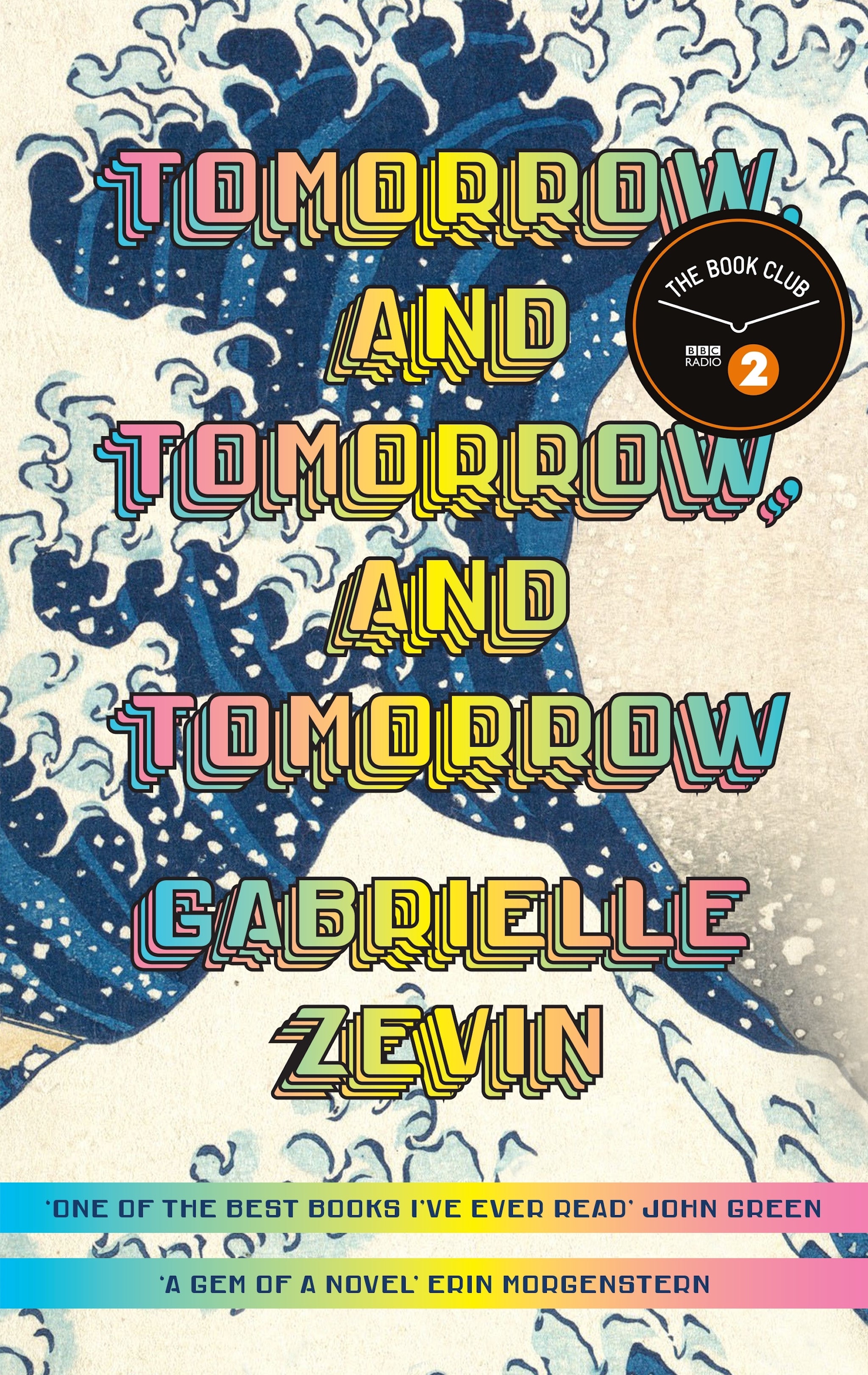Gabrielle Zevin: ‘We have a very white, male idea of the “capital G” gamer’
Gabrielle Zevin’s 10th novel, about two young gamers, has already been snapped up for a $2m film deal. The author talks to Helen Brown about cultural appropriation, only being reviewed by white men, and how the internet changed our concept of identity


Your support helps us to tell the story
From reproductive rights to climate change to Big Tech, The Independent is on the ground when the story is developing. Whether it's investigating the financials of Elon Musk's pro-Trump PAC or producing our latest documentary, 'The A Word', which shines a light on the American women fighting for reproductive rights, we know how important it is to parse out the facts from the messaging.
At such a critical moment in US history, we need reporters on the ground. Your donation allows us to keep sending journalists to speak to both sides of the story.
The Independent is trusted by Americans across the entire political spectrum. And unlike many other quality news outlets, we choose not to lock Americans out of our reporting and analysis with paywalls. We believe quality journalism should be available to everyone, paid for by those who can afford it.
Your support makes all the difference.Gabrielle Zevin has all the stories. The author of Tomorrow, and Tomorrow, and Tomorrow, a tremendous new novel about art, friendship and gaming, has had her work dismissed as “charming”. “Lovely”. “Easy-going”. She knows the ways she’s been “constantly made to make myself smaller, as a woman, writing novels”.
Literally, in one instance. “There was another book that I know that has the exact same word count as mine, written by a male, that was printed to be 240 pages longer than one of mine recently.” She imagines critics reviewing it – this “bigger book” – as “pacier, because the pages are turning faster and it’s NOT FAIR”. That men get to be heftier and faster, just because of the font? “Pfft! YEAH! I thought, early on, that I wanted to find a big canvas for myself and take up space.”
But with her super-cool 10th novel, Tomorrow, and Tomorrow, and Tomorrow, she’s delivered a literary blockbuster destined to be filed in the Great American Novel category. The same category normally dominated by “the silverbacks”, who don’t usually open the clubhouse door to women, “so we have to pry it open”. Equally committed “to making art and making it popular”, she’s already bashing out the screenplay for Paramount, who bought the movie rights for $2m (£1.7m) last February. Her dialogue is so punchy I imagine she’ll be able to lift much of it straight from page to screen.
Sam, one of the two brilliant video-game designers at the heart of the story, has a theory: “There is no more intimate act than play – even sex.” He holds this belief because of the lifelong bond he formed with his collaborator, Sadie, when they met as pre-teens in a hospital gaming room in the early 1990s. He was there as a patient in recovery from a car accident that left him with life-changing injuries. Sadie was there visiting her older sister, who was being treated for leukaemia.
Although both fictional kids have genius-level IQs, neither is capable of processing the emotional fallout from their situation. So they escape into Nintendo’s Super Mario games together. They take turns controlling the same character. Trading tips and, gradually, trading confidences, they evolve together and fuse their ideas. As the pair mature, they retain an intimacy that runs deeper than anything either individual might share with a lover. And as adults, they create complex new worlds full of private jokes.
“As a member of Gen X,” says Zevin, who was born in 1977, “I wanted to ask questions about the people who came of age along with the internet. I did. I think it affected the way we think about identity. We’re like the middle child, squashed in between the boomers [who think of identity as fixed] and the Gen Y kids who think everything is fluid. We’re, like, the translators, bouncing between the real world and the virtual world. Video games totally changed our perspective on identity.”
As a fellow Xer, I agree. I spent many of my formative years running – in pixelated form – up platforms. Onscreen, I was an Italian man with a comedy ’tache. I was a frog. An ice-cool straight bat, whacking down walls. I don’t remember ever being a woman.
“Yeah,” says Zevin, with a lo-fi eye-roll. Squatting on the floor of a Chicago hotel room – “Sorry, this is the only place I can plug in my laptop!” – she says she “relates”. She’s rattling though the US leg of the book tour, delighted to see fans of her Young Adult fiction (including 2005’s award-winning sci-fi story Elsewhere) now enjoying her adult bestsellers like The Storied Life of AJ Fikry (currently being turned into a film starring Christina Hendricks and David Arquette).
The biracial child of a Korean mother and a Russian-Jewish father, Zevin grew up slipping between worlds. “One of the towns I was raised in was 66 per cent Jewish, you know? When I was there, I found myself identifying more with being a Jewish person. But then, the first time I went to Hawaii, seeing so many Asian people there, I felt more Asian. And... you know, also less Asian at the same time. Identity is probably less fixed for biracial people.”
In the novel, Sam and Sadie’s first commercial game is played from the perspective of a genderless child of Japanese origin. Its graphics are inspired by the prints of Hokusai. “The word ‘appropriation’ doesn’t enter anyone’s head, in the way it might today,” says Zevin. “They just love that culture and want to reference it.”
She notes that “people who don’t publish their thoughts over many years can deny they ever thought or felt in ways that are less acceptable now. They don’t notice the evolution of their thinking. But when I look back on the books I published 17 years ago, then I can see things I wouldn’t be fine with now. Nothing extreme. But my thinking and feeling on feminist issues has definitely changed.”
She says that some of the younger readers she has met on this book tour have been troubled by the fact that one misogynist character isn’t called out on his inappropriate behaviour. “They ask why he isn’t punished. And I have to explain the book ends in 2012, and people like him were getting away with that until [the #MeToo movement] in around 2017. He’s a wonder boy, a star, he makes incredible games and his only criteria is: ‘Is it fun?’” Which, Zevin suspects, is “not a bad criteria for assessing many things in life!”
Zevin is a lifelong gamer; her parents both worked for computer company IBM when she was growing up. “My dad was a programmer and my mum started out as a secretary and worked her way up to a high-level marketing job in autonomic machine learning. We were completely an IBM family. People don’t realise the extent to which that was a planned community in the 1980s and 1990s...” she laughs. “I make it sound weird and it was nice. There was, like, an IBM theatre troupe. Right? You know? There were, like, IBM parties and IBM family day. When I went to college, I received the IBM scholarship...”

As an only child, Zevin says, computer games appealed because she could play alone: “A lot of the games I grew up playing were graphic action-adventure games, you know? Text-based. You solved them through words. And for me, novel-writing is also a puzzle you solve through words.”
Like her hero Sam, Zevin landed at Harvard, which she admits was “a disappointment”. She’s sanguine now about how she had pinned all her hopes on arriving at the college and “immediately finding my tribe, you know?” But she didn’t. “I think that response is common. People put so much effort into getting there, and then there’s often a crisis.” In her own case, she was forced to acknowledge: “You’re not extraordinary any more.”
There’s a seductive braininess to the games Zevin’s characters create. In one, players must blast lines of Emily Dickinson’s poetry (just google “Emily Blaster” to splat out lines of verse yourself); in another, they must acquire points earned for being a munitions worker in Nazi Germany – when, the player must decide, should you stop? It has the effect of making readers feel included in a clique of cleverness. You don’t need to know anything about gaming in advance to close the book feeling like a tech insider, fully versed in the mechanics of graphics engines designed “to render photorealistic light and shadow in water”.
Although the characters excel at their jobs, they struggle with their relationships. At one point, Sadie says: “I’m a f***ing genius so I don’t know why I f*** everything up all the time, but I do.” Although Zevin is happily married to film director Hans Canosa, to whom this book is dedicated “in work and in play”, she relates to characters who “may have it all sorted in art but don’t know how to solve their problems in real life”. She admits: “In reality I’m a pessimist, but in fiction I find all this hope... My books show the better part of me.”
Much of the novel’s zingy optimism springs from Zevin’s playfulness. The book’s title spins Shakespeare’s doomed soliloquy from the tragedy Macbeth into a gamer’s faith that life can be essayed over and over again. Zevin gives her characters, like their avatars, multiple opportunities to replay situations and reinvent themselves.
She sighs that the book “has only been reviewed by white men in the US, while it was definitely written by a woman of colour”. But Zevin believes that her novel might encourage women to acknowledge their participation in the gaming world. “After 40 years of gaming,” she says, “I still don’t define myself as a gamer. But that’s because we have a very white, male idea of the ‘capital G’ gamer.” She sighs. “But if you do anything reward-based online – Facebook or Insta or even shopping – and you find it fun, then you could call it gaming.”
Although Zevin doesn’t use social media much, because “privacy is the most important thing to me”, she believes that many people present their truest selves online and “the mask they wear is their face”.
“Creating an online identity is a creative act, you know?” She shrugs over the fact that when she has tried, “it comes off as some, like, weird performance, and a bad performance – like a wooden person, you know?” She winces. “I’m just too self-conscious!” She signs off from our chat with the hope that I don’t “make it sound ‘easy-going’. Because nothing that matters is, right?”
‘Tomorrow, and Tomorrow, and Tomorrow’ (Chatto & Windus) is out now



Join our commenting forum
Join thought-provoking conversations, follow other Independent readers and see their replies
Comments